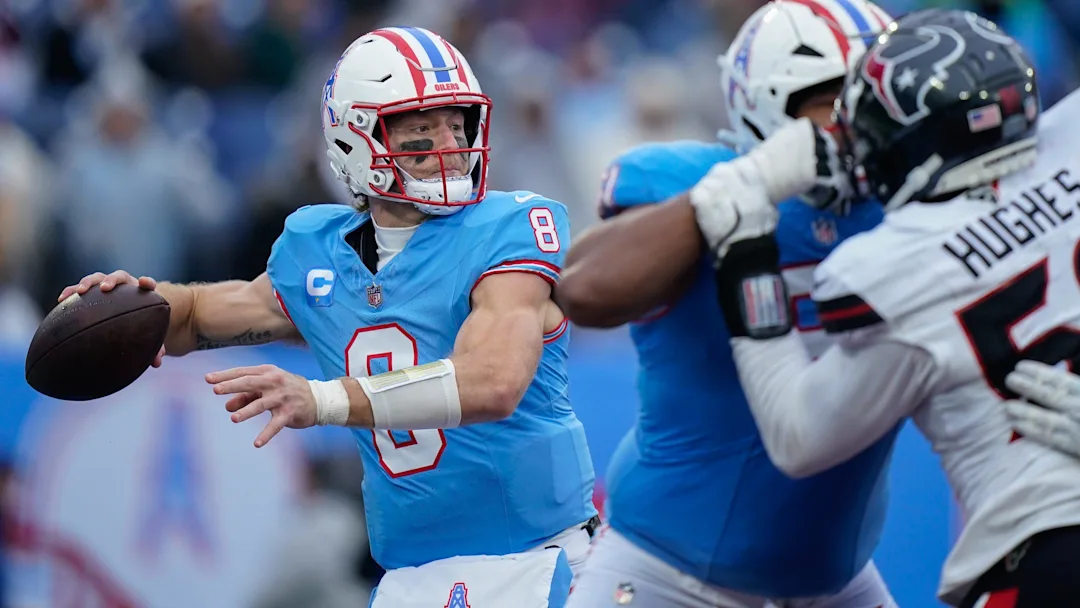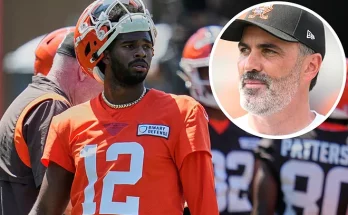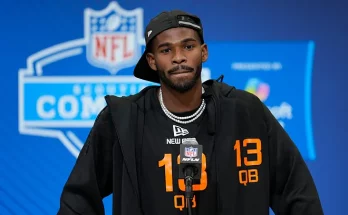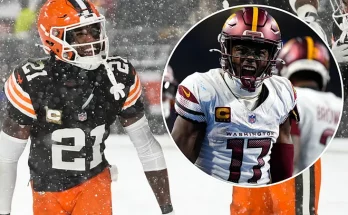The NFL is a league built on tough decisions and relentless forward momentum. For the Tennessee Titans, the time may be coming for a decision that once seemed unthinkable: trading quarterback Will Levis. Just a year removed from using a high second-round pick on the former Kentucky standout, the Titans are facing a new era under fresh leadership, and with it comes a re-evaluation of priorities. As counterintuitive as it might sound to move on from a quarterback with only one season under his belt, there are compelling reasons why the Titans could — and perhaps should — entertain offers for Levis.
The first reason lies in the sweeping changes within the Titans organization. General Manager Ran Carthon and new head coach Brian Callahan represent a departure from the Mike Vrabel regime under which Levis was drafted. While Levis showcased some promising traits in 2023, he was not selected by this current leadership team. When new regimes take over, it’s not uncommon for them to pivot toward their own vision, and that often starts at quarterback. Callahan, who comes from a Cincinnati Bengals offense built around Joe Burrow, may be seeking a different prototype than the cannon-armed but sometimes erratic Levis.
Second, the 2024 NFL Draft looms large, and Tennessee holds the No. 7 overall pick. In a quarterback-rich draft class featuring names like Caleb Williams, Jayden Daniels, Drake Maye, and J.J. McCarthy, the Titans have a legitimate opportunity to reset the quarterback position. If a signal-caller Callahan loves is still on the board at No. 7 — or if Tennessee maneuvers up the board — the Titans may prefer to start fresh rather than continue developing Levis. This draft is viewed as one of the strongest quarterback classes in recent memory, and passing on a potential franchise-altering talent simply to stick with last year’s second-rounder could prove shortsighted.
Moreover, Will Levis’ trade value is relatively high right now. After a rookie campaign that saw flashes of brilliance — including a four-touchdown debut against the Atlanta Falcons — Levis demonstrated the arm strength, toughness, and moxie that had scouts buzzing before the 2023 draft. Even though his play was inconsistent, particularly under pressure, there is enough on tape for quarterback-needy teams to believe they can mold him into a reliable starter. Levis also comes with a cheap rookie contract, which only enhances his appeal in a league where teams are always looking for value under center. Packaging him now could yield a solid return — perhaps a second-round pick or a pair of Day 2 selections — that Tennessee could use to bolster its young roster elsewhere.
Another factor worth considering is the state of the Titans’ offensive line and skill-position depth. Tennessee is in a rebuild, whether they want to admit it or not. While they’ve added veteran receiver Calvin Ridley and have some talent in the pipeline with Treylon Burks and Tyjae Spears, this roster is far from a finished product. It’s questionable whether this is the right environment for a young quarterback to develop. Rather than potentially stunting Levis’ growth behind a shaky line and inconsistent playmakers, the Titans could use the draft capital from a trade to shore up the trenches and set the stage for a new quarterback to enter a more supportive system in 2025 or 2026.
There’s also the matter of the quarterback market itself. Several teams are in desperate need of a new face of the franchise and may view Levis as a more attractive option than what they can get in the second or third tier of this year’s draft. Teams like the Denver Broncos, New York Giants, Las Vegas Raiders, and even the Minnesota Vikings if they don’t find their guy in the draft, may be willing to take a chance on Levis. Unlike a rookie, Levis has NFL experience. Unlike a free agent, he’s cheap. And unlike a bridge quarterback, he offers upside. That combination could make him one of the more enticing trade chips on the market.
Levis, to his credit, showed growth throughout the 2023 season despite the instability around him. He played behind an offensive line that surrendered 64 sacks — tied for the most in the NFL — and still managed to complete 58.4% of his passes for 1,808 yards, 8 touchdowns, and 4 interceptions in nine starts. His 7.1 yards per attempt ranked him ahead of several more seasoned starters. But statistics only tell part of the story. Levis’ aggressive downfield mindset, ability to throw off-platform, and fearlessness in the pocket give evaluators reason to believe he can blossom into a high-level starter if surrounded by the right pieces.
And yet, that very potential is why the Titans might consider moving him now. If Levis develops into a capable starter for another team, it wouldn’t necessarily be an indictment of the Titans. It would be a reflection of the reality in the NFL: fits matter. Timing matters. Philosophies matter. And sometimes, a quarterback and an organization simply aren’t aligned at the right moment.
There’s also a financial component that cannot be ignored. While Levis is on a rookie deal, resetting the quarterback position with a first-round pick could extend Tennessee’s window of financial flexibility. Having a quarterback on a rookie-scale contract provides a massive advantage in today’s salary cap structure. If the Titans believe they can get similar or better production from a rookie, moving on from Levis becomes less about giving up and more about optimizing resources. That money can then be allocated toward fixing the offensive line, extending young defensive stars, or adding veteran leadership to a young locker room.
For the Titans, this is not about giving up on Will Levis. It’s about weighing the upside of a new beginning against the risk of stagnation. They’ve been in quarterback purgatory since the decline of Ryan Tannehill, and while Levis might have the tools to grow into something more, the Titans have to ask themselves a hard question: Is he the right player to build around at this exact moment?
In an increasingly competitive AFC South, where the Houston Texans and Indianapolis Colts have already found their franchise quarterbacks and the Jacksonville Jaguars are still all-in on Trevor Lawrence, the Titans cannot afford to get the quarterback decision wrong. Missing at quarterback doesn’t just set a team back — it sinks it. Trading Levis now would be a bold move, but boldness is often what separates perennial contenders from perpetual rebuilders.
Levis’ departure wouldn’t be a sign of failure. It would be a calculated risk — the kind that franchises must be willing to make to escape the NFL’s middle tier. The Titans know better than most what mediocrity looks like. They’ve lived in that space for several years now, hovering around .500, never bad enough to get elite talent, never good enough to make a serious playoff run. That cycle has to break somewhere. If trading Will Levis gives them a shot at that kind of change, they owe it to themselves and their fans to at least explore the possibility.
Ultimately, the Titans hold all the cards. They can choose to keep Levis and give him another year under Brian Callahan’s tutelage. They can roll with the No. 7 pick to build around him. Or they can flip him while his value is still high, reset the quarterback clock, and begin anew. No option is without risk. But in the NFL, sometimes the most dangerous move is standing still.
Will Levis is a talented quarterback with intriguing potential. But potential is a promise — not a plan. The Titans’ new leadership may decide that a new plan is exactly what they need. And if that plan involves trading Levis, they might just find that now is the best time to do it.



